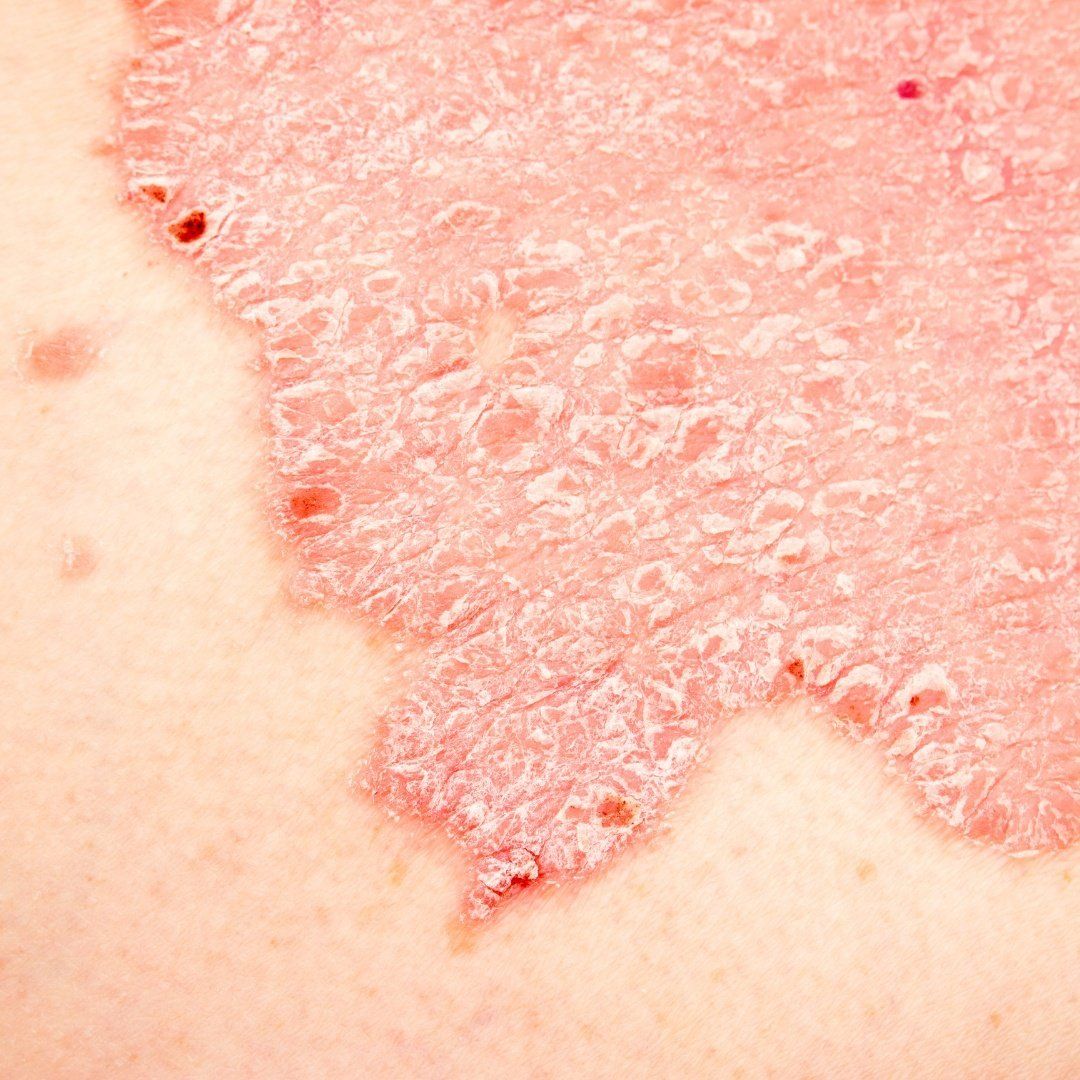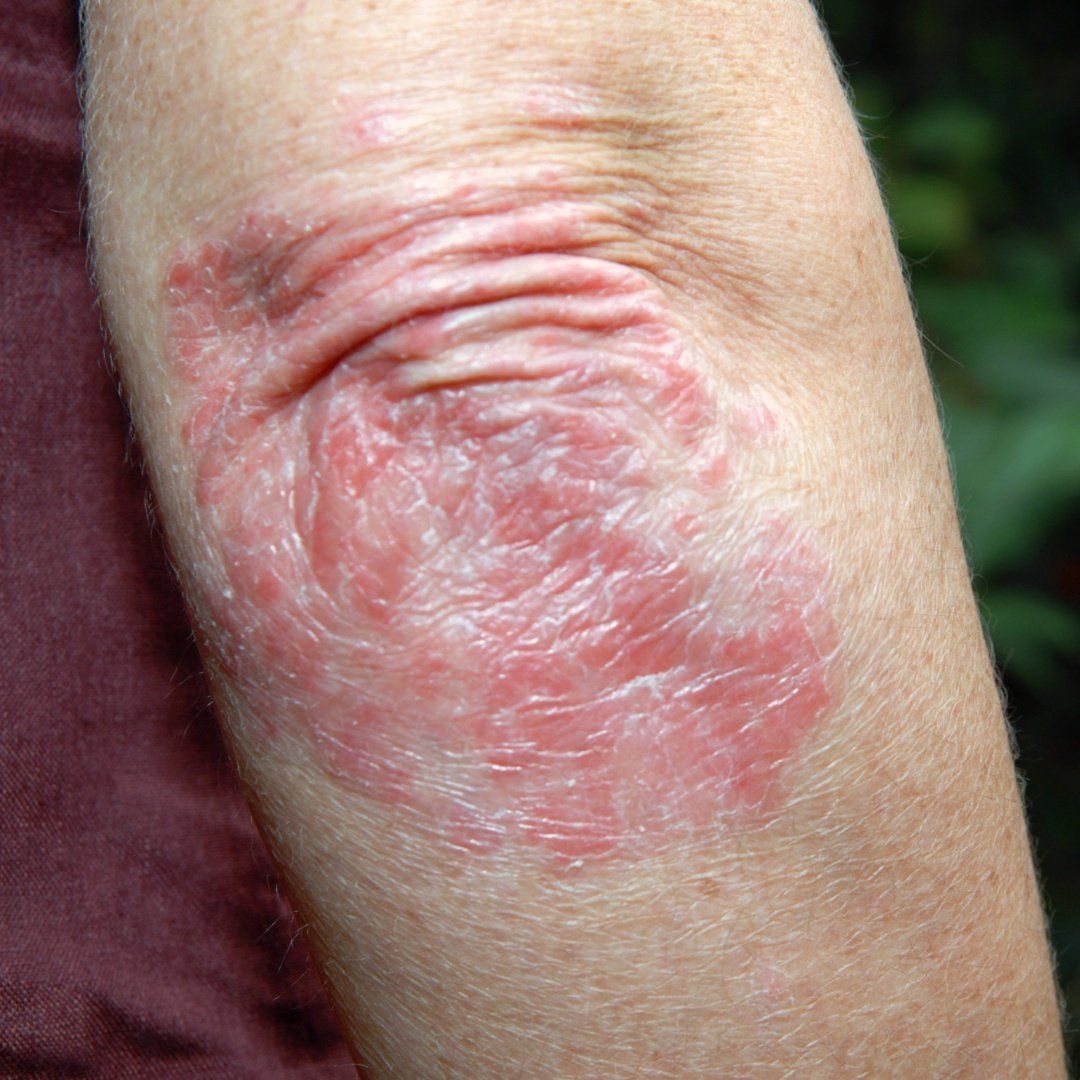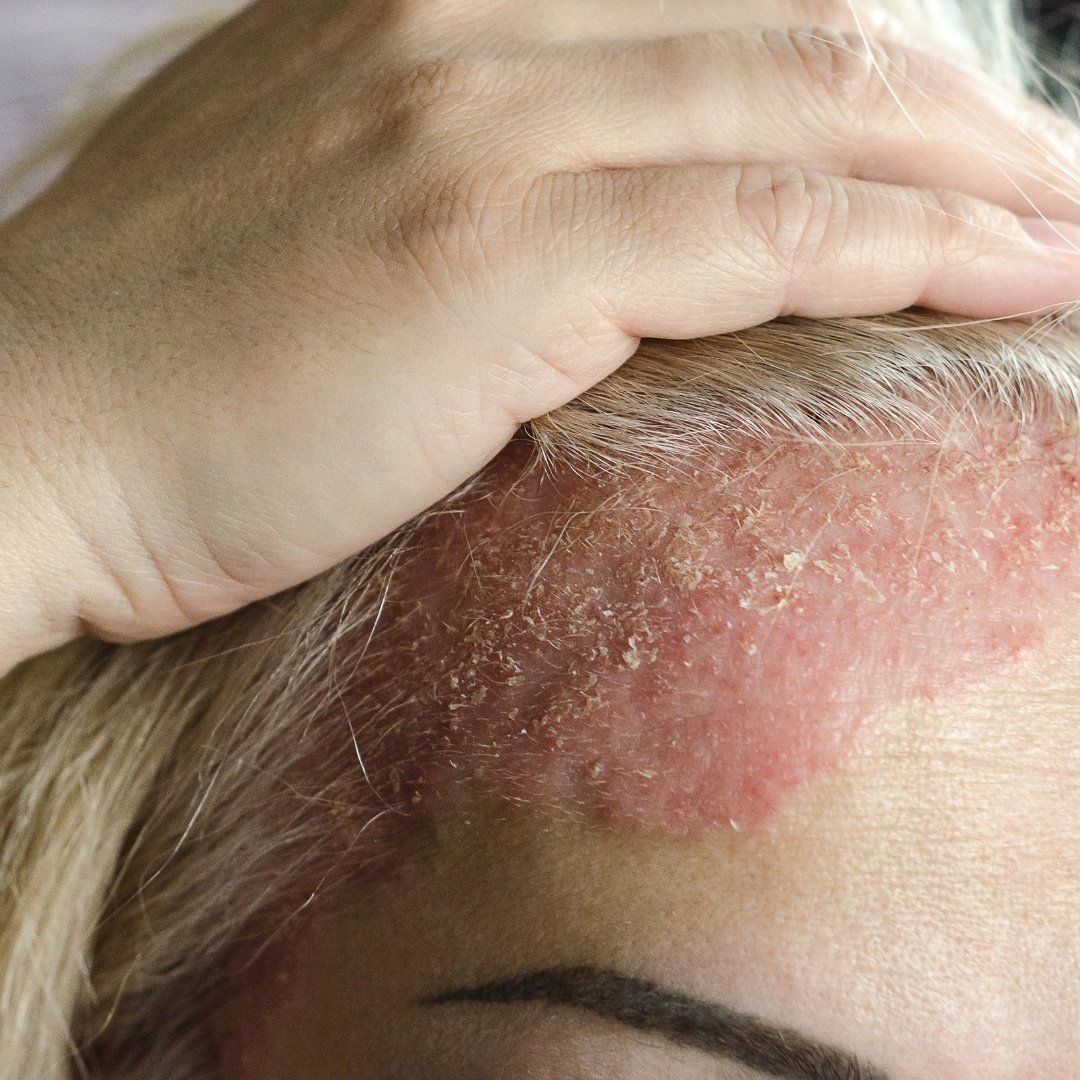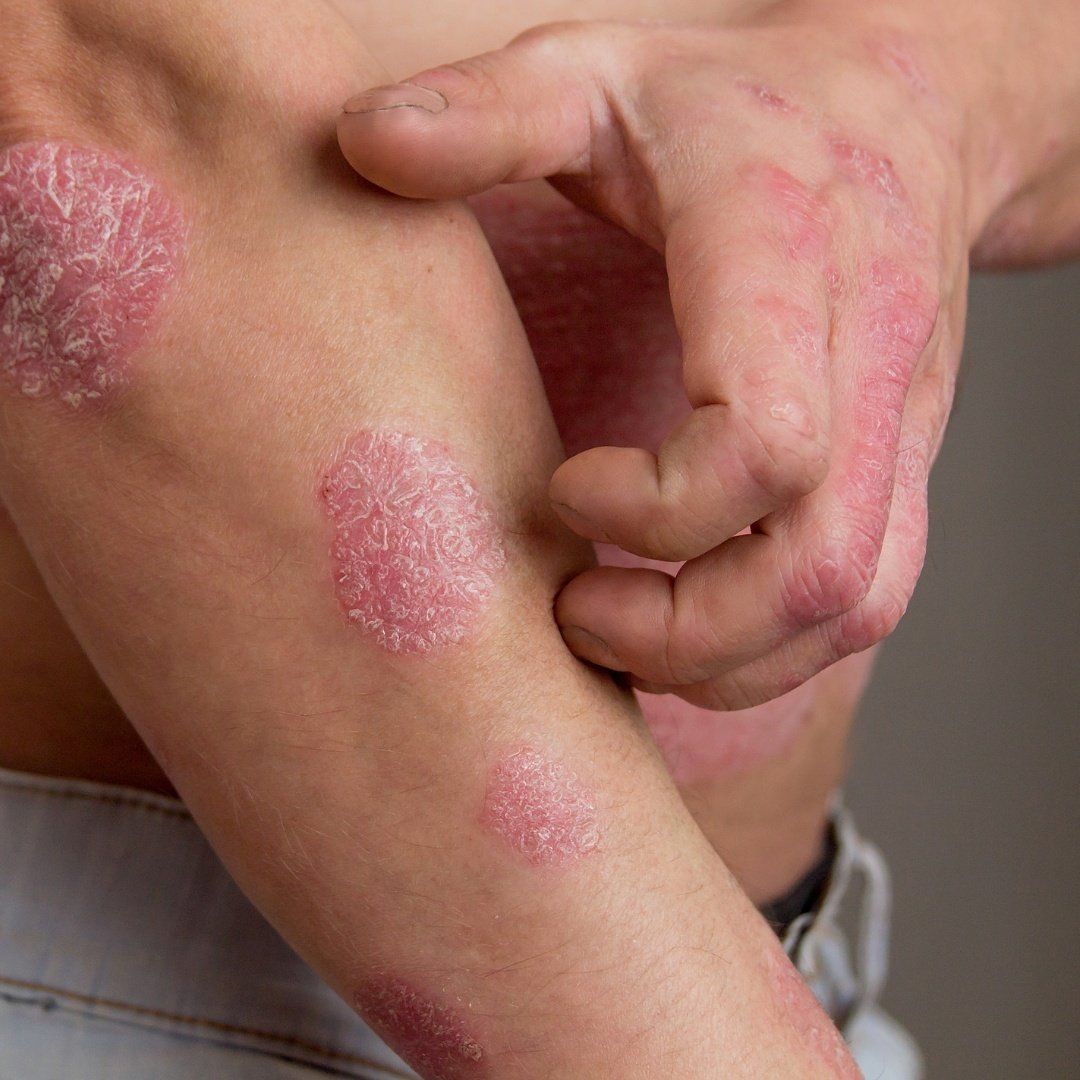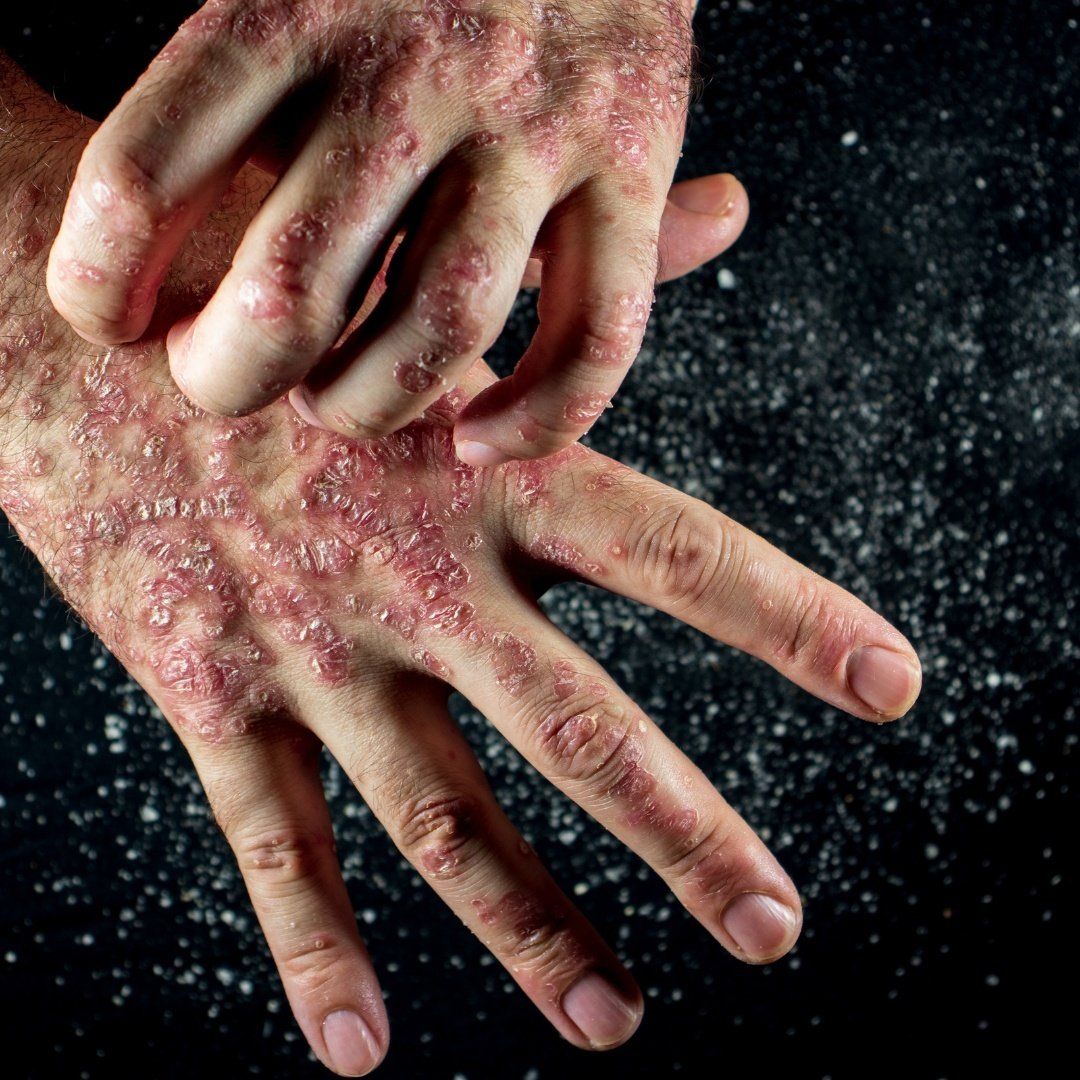Psoriasis,
Also called psoriasis, is a chronic inflammatory disease that is particularly noticeable through reddish, scaly, often itchy skin changes. People suffering from psoriasis have a faulty immune system response to the body's own skin cells. This reaction leads to permanent inflammation. The body reacts by producing new skin cells at an accelerated rate, thus causing overproduction. As a result, these immature skin cells reach the surface of the skin more quickly and detach in the form of so-called plaques. The plaques can vary in size and appear anywhere, but most commonly on the extensor side of the knee and elbow joints, and on the hairline.
The disease can appear in different forms and have different degrees of severity. The quality of life can suffer significantly from psoriasis.
A distinction is made between psoriasis in mild, moderate and severe form.
Occurrence in adolescents during puberty as well as young adults before the age of 40 are often affected. Women and men are equally affected.
information
-
forms of therapy
- Ultrasound therapy Celluma light therapy
-
What are the causes of psoriasis| Psoriasis?
The causes have not yet been fully explored. However, it is known that there is a hereditary predisposition to the disease. Does not mean that the disease will also break out.
-
Symptoms of psoriasis
Typical signs:
-
forms of psoriasis
Psoriasis:
-
The right diet for psoriasis
There is no recommended diet that has been proven to help people with psoriasis. Nevertheless, a balanced diet can help to alleviate the symptoms.






